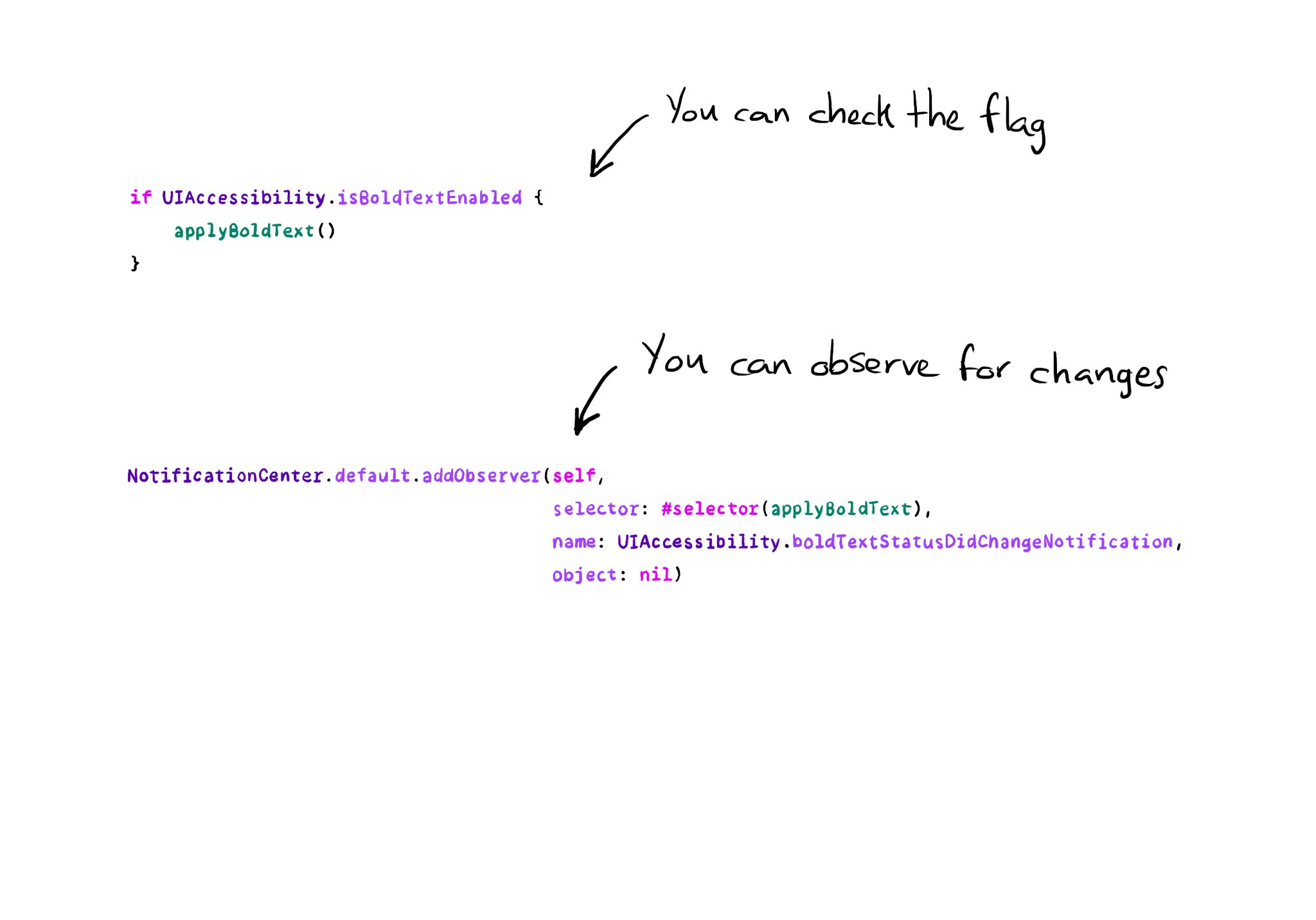Zoom lets the user magnify the screen if the user needs to zoom in a region to be able to see any details a bit closer. It is useful to know the gestures that let you zoom in, back out, move around the screen, adjust zoom level or show its menu.

Zoom lets the user magnify the screen if the user needs to zoom in a region to be able to see any details a bit closer. It is useful to know the gestures that let you zoom in, back out, move around the screen, adjust zoom level or show its menu.


I used to think of Zoom as an accessibility feature that didn't need support from developers. But actually, testing with Zoom might unveil some issues and bad practices. Watch out for buttons that change something far away on the screen. Using a snackbar is usually not a good idea. Especially if it lets you do/undo something. Because they're ephemeral, they're difficult to spot and/or reach with Zoom, VoiceOver, Switch, Keyboard... Confirming a destructive action with a dialog might be better.

"We have one job, and that's to make our apps work. And if you are not implementing accessibility features, you are forgetting about making it work for a lot of people" @NovallSwift Couldn't have said it better! https://x.com/novallswift/status/1328387659744505856

All the accessibility capabilities you can check for, have counterpart notification names you can observe in case the user changes its preferences while using your app. https://x.com/dadederk/status/1577435144129892352
Content © Daniel Devesa Derksen-Staats — Accessibility up to 11!